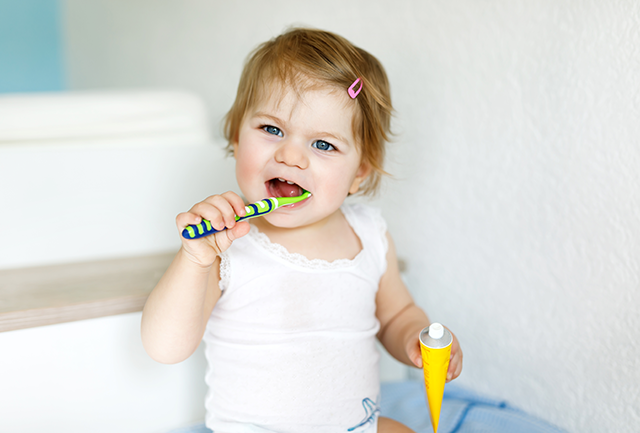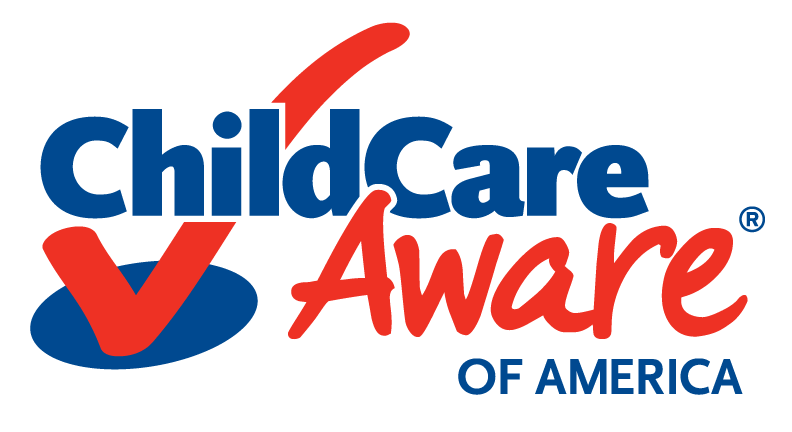
 Routines are familiar patterns and habits on which families rely to manage their daily lives. As parents often look for ways to save time and be organized, routines become a much needed helping hand. By setting daily schedules, creating family message centers, and arranging storage for personal belongings, families can stay in control of their activities and troubleshoot potential problems.
Routines are familiar patterns and habits on which families rely to manage their daily lives. As parents often look for ways to save time and be organized, routines become a much needed helping hand. By setting daily schedules, creating family message centers, and arranging storage for personal belongings, families can stay in control of their activities and troubleshoot potential problems.
Rituals are traditions that families inherit or create from their personal beliefs. Often parents will blend customs from their own childhoods with new traditions. These will provide memories for children to take into adulthood. Although many rituals are created to celebrate holidays, others may celebrate family togetherness, seasons, charitable giving or community events.
Rituals and routines provide children with a sense of identity, stability and consistency that is a cornerstone to growing up. Traditions have always been important in how we function as families. As families grow and change, so do their rituals.
Daily Routines
Children need predictable boundaries. The repetition of daily routines gives your child the security of knowing what is expected and helps to build a sense of responsibility. The ability to organize yourself and your belongings is a critical skill that is best learned at an early age. Dependable patterns will make each day easier for the entire family.
It is up to you as the parent to plan how your family can be efficient. Take a minute to think about organizing your family’s daily schedule to create set times for activities such as meals, brushing teeth, leaving for school, homework and bedtime. Post your schedule where everyone can see it and use pictures with captions for young children. A working calendar can also provide daily reminders. As your child gets older you can teach him to make lists for himself.
Be clear with your family about your expectations. Start with a few routines that may help or eliminate some stressful parts of the day. You can add new routines as you need them. Selecting clothes the night before may avoid a scramble in the morning and having toys picked up at the end of the day can create an order for everyone.
Personal Belongings
Keeping track of all of your family’s personal belongings can be a daily chore. Simplify wherever possible and set small, achievable goals for you and your family.
Put a basket by the door for all the hats and mittens, keep writing materials in a specific drawer, have shelves or brightly colored containers just for children’s toys and books. Your family will quickly learn that everything has its place.
Holiday Celebrations
Take a few minutes to think back to previous holidays and remember the parts that were the most enjoyable and those that caused the most stress. Consider what you will keep and what you might eliminate. Anticipate the rough spots for your family and prepare for them.
The key is to plan ahead. Good advance planning can minimize problems. Keep a little notebook handy to keep track of lists you don’t want to forget. If you can get something done ahead of time, it can save you the last minute rush later.
At holiday times it can be difficult to keep to your daily patterns. Try to stick to year-round routines that work for your family especially around eating and sleeping schedules. Speak with friends and relatives to let them know what works best for you.
Helpful Tips For Daily Routines
- Share household responsibilities with your child whenever p Feeding pets, setting the table, loading the washer can be accomplished together.
- Do as much as possible the night before. You can make lunches, organize backpacks, lay out clothes and shoes.
- Use mealtime to get caught up on the day’s events and activities at school.
- Set regular times for certain activities including meals, homework, cleanup, and bedtime.
- Create designated spaces in your home for children’s belongings so each family member knows where everything belongs.
- Use calendars, charts, or planners to help keep track of schedules and commitments.
The School Connection
Part of being organized with your daily routines includes having good communication with your child’s school or child care provider. Stay informed of assignments and special activities and be sure to read notices and bulletin boards. Make your child’s provider or teacher aware of your family’s routines and needs as she may be able to offer helpful suggestions.
Sometimes the simplest of ideas can have a great impact. Having sneakers by the door in the morning and having that requested snack waiting in your car for the ride home may mean that it’s that much easier to get in and out of the child care center on time.
Rituals
A good starting point is to think through the rituals of your own childhood. You may also want to talk to friends about their family traditions. If you are a two-parent family, discuss your beliefs and compare them with those of your partner. Together you will create a blend of rituals that reflect who you are and what delights your family. You will probably be enhancing some rituals, displacing others, and creating entirely new traditions for your family. These may continue to change over the years as you create new, thoughtful rituals that bring your family together.
Although many rituals are tied to seasonal holidays, some rituals may be created for other reasons. For many parents these rituals fill the need to accomplish a task and create quality family time. Here are some ideas that may work for you:
- Ask family members to bring food that represents their ethnicity to family gatherings.
- Shop for new clothes and school supplies 2 weeks before school starts and have lunch or snack out at a favorite restaurant.
- Have every person share what it is they are thankful for around the table at mealtime or during a holiday.
- Consider having a breakfast treat, a note in your child’s lunchbox, and comparing photos and stories of past birthdays to make your child’s birthday special all day long.
- Gather friends and family for an end of the school year celebration.
- Keep at least some time each week for just immediate family. This may mean saying no to some invitations or other activities.
- Participate in a charitable giving activity as a family.
Charitable Giving As A Family Ritual
No matter what the age of your child is, volunteering as a family can be a wonderful ritual for everyone to participate in. Here are a few suggestions to get you started:
- Create a double dinner by making twice as much as your family needs and take it to a homeless shelter or a house-bound senior citizen.
- Help serve a meal at a soup kitchen. Call ahead to find out when you might be most needed.
- Shop for some toys or books with your child on her birthday and give them to a shelter.
- Invite someone who lives alone (such as a senior citizen or a college student who can’t get home) to your house for a meal or a holiday.
- Create a holiday food gift basket for a family in need.
- Recycle your bottles and cans and donate the money to your favorite charity.
Setting Up the Family Calendar
A multi-month working calendar, from end of school to the beginning of school next fall, placed where everyone in the family will read it, is a wonderful way to organize new routines and schedules. Children gain a sense of control over their own activities and parents can troubleshoot potential problems. The calendar takes over the task of daily reminders and can also serve as a family message center and emergency phone list.
The Daily Parent is prepared by NACCRRA, the National Association of Child Care Resource and Referral Agencies.
© 2012 NACCRRA. All rights reserved.
{{cta(’79ebd88d-f6e8-4da1-a8ac-730753aedbd3′)}}


